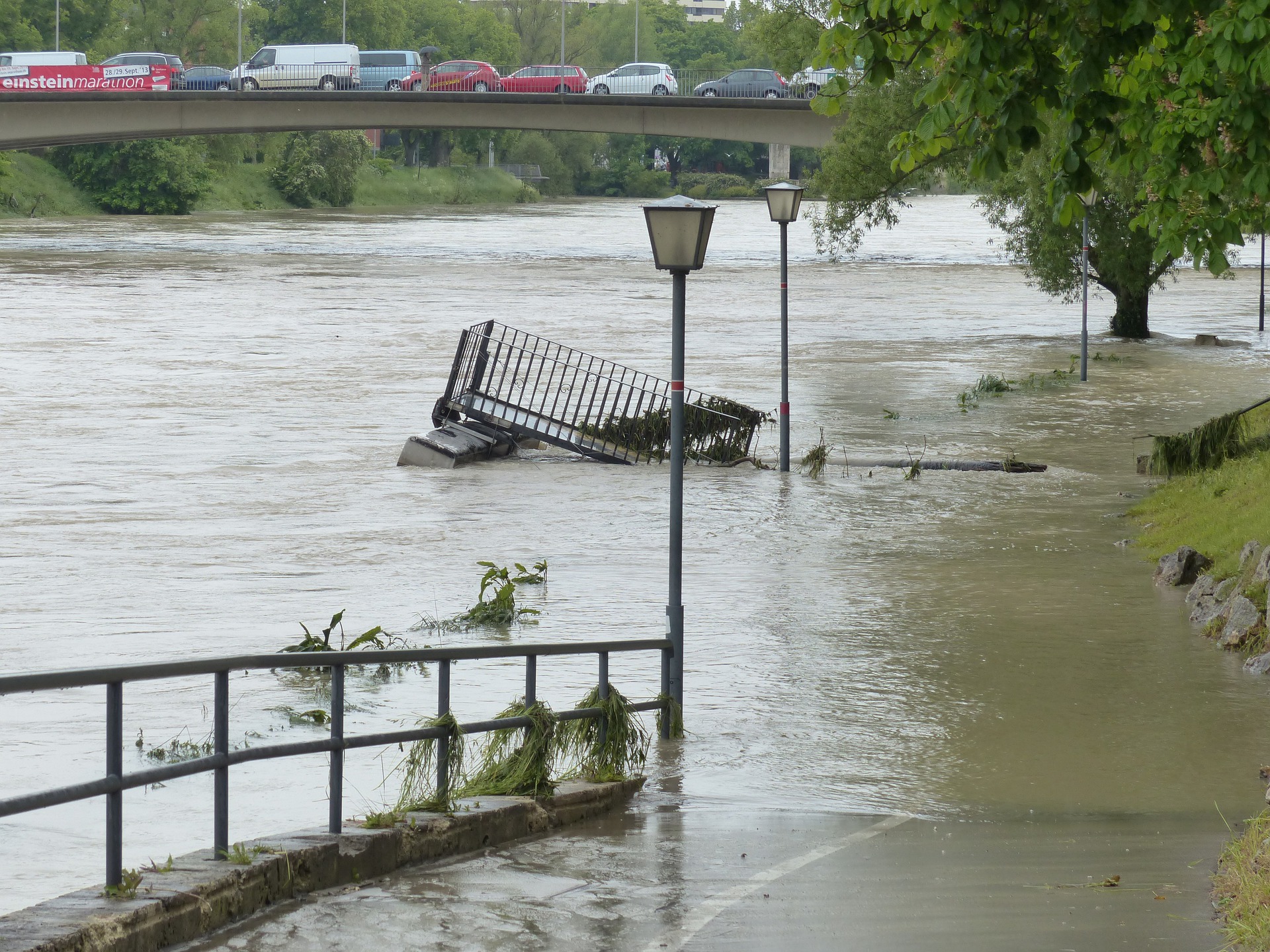Almost a quarter of our Global Alerts this time last year (September 2021) were concerning natural disasters or severe bad weather.
Natural disaster is defined as ‘a natural event such as a flood, earthquake, or hurricane that causes great damage or loss of life’. According to the Emergency Event Database (EM-DAT) 432 disastrous events related to natural hazards worldwide were recorded last year. Overall, these accounted for over 10,000 deaths, affected over 100 million people, and caused hundreds of billions of US$ of economic losses. Asia was the most impacted continent.
Natural disasters can have consequences for travellers and organisations including but not limited to cancelled or delayed flights, local transportation at a standstill, and damage to properties, infrastructure, and the environment.
As an organisation this will impact your traveller’s health and safety, result in financial loss, and throw your best laid plans into chaos. Weather form’s an important part of the risk landscape that must be managed and prepared for as a priority.
This year has seen tornadoes in the US, floods in parts of the eastern coast of Australia, and Europe suffering with heatwaves, wildfires and drought. Recently, Pakistan has seen over 1,000 people killed and millions affected in what is said to be the country’s worst flood in history.
Bad weather can happen anywhere, anytime. However, some areas are more susceptible to certain types of natural disasters. The best time to prepare for a disaster is before it happens. An awareness of a country and sublocations is fundamental for informed decision making.
Securewest Global Alerts keep you informed of any natural disasters and weather warnings in regions you are travelling to. You are not only sent a notification update but advice and recommendations if you are in the region. Alerts are also categorised under high, medium and low to help you determine the risk level.
Example alert for Pakistan:
Pakistan: Relief operations ongoing due to inclement weather across several provinces as of August 30
Please be advised:
- Relief operations are underway across Pakistan after the death toll from the recent floods surpassed 1,100 as of August 30. Per government reports, over 33 million people had been impacted across the country.
- According to weather authorities, rainfall, accompanied by thunderstorms and winds, is forecast over a few places in eastern Balochistan, Gilgit Baltistan, and upper Khyber Pakhtunkhwa on August 30.
- In Quetta, authorities were unable to restore gas supplies, with repairs expected to take an additional four-five days, per August 30 reports. Power supply to Quetta and other parts of the province was also severely impacted after damage to transmission lines in Bolan.
Assessments:
- The inclement weather forecast is likely to continue to cause disruptions to business continuity, supply chains, and travel due to the water-logging of roads and major highways. Additional disruptions due to relief operations are highly likely.
- There is a latent risk of power outages due to collapsed electricity lines.
- The inclement weather may also cause disruptions to airport services.
Recommendations:
- Those operating or residing across Pakistan on August 30 and over the coming days are advised to avoid nonessential travel to the aforementioned affected and at-risk areas due to the inclement conditions while remaining cognizant of local updates.
- Allot for disruptions to traffic and public utilities and reconfirm all flight and overland travel itineraries.
- Do not walk or drive through floodwaters.
- In case of flood warnings, immediately evacuate to higher ground. Once the higher ground has been reached, do not attempt to evacuate the wider region alone and seek professional assistance with evacuations.
- Avoid contact with floodwater, including through bathing and drinking. Ensure adequate supply of bottled water; boil water before consumption as a last resort.
- Confirm that places of stay have working generators in case of power outages while packing sufficient batteries and flashlights.
- Charge essential electronic devices such as cellular phones, laptops, and tablet computers ahead of the planned power outage, and initiate energy-saving functions on these devices as needed.
- Disconnect all surge-prone devices such as computers, televisions, and appliances to prevent potential damage.
5 top tips
-
Prepare
By researching your destinations and receiving updates about where you are or where you are travelling to helps you reduce the risks from extreme weather. Pre-travel training increases your awareness of the risks from different weather scenarios.
-
Monitor the Situation
Weather can be unpredictable and fast-changing due to erratic atmospheric conditions and therefore monitoring it regularly by receiving notifications and alerts and checking local forecasts will keep you informed.
-
Have a plan
If there is a high risk of severe weather conduct a risk assessment, have an evacuation plan, identify a safe place and ensure you have basic provisions. This will be even more prevalent for the future with the impact climate change is having on our weather systems.
-
Maintain communications
Good communication is essential and having one point of contact. A Travel Risk Management company, like Securewest, has a 24 hour / 7 day a week Global Response Centre so wherever you are in the world you can receive support. Our app has a check-in function so you can let your organisation know you are safe and your location can be monitored.
-
Adhere to local authority emergency responses
If you are in-country, follow local authorities’ advice, including evacuation orders and check local media for official communications and instructions.
Being prepared and keeping informed can reduce panic and the overall impact of a natural disaster on a traveller and organisation. For more information regarding our Travel Risk Management services including our Global Alerts please contact sales@securewest.com. Keep your workforce safe – we are currently offering a free demo and 30 day free trial of our platform.
